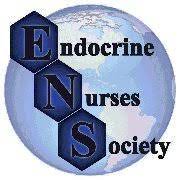With so many diverse specialties, nurses are able to choose a career path based on their interests from endocrine nursing to cardiac nursing to working as an addictions nurse.
Minority Nurse recently caught up with endocrine nurse Raven McGlotten MSN, RN, Commander, U. S. Public Health Service, and a research nurse specialist with the National Institutes of Health (NIH)/National Institutes of Diabetes and Digestive and Kidney Diseases (NIDDK). An active member of the Endocrine Nurses Society (ENS), McGlotten’s role as a research nurse allows her to oversee the care of participants in clinical trials related to the endocrine system.
Please tell me a little about your background and how you decided to become a nurse.
When I was in high school, it seemed everyone (including myself) had me destined to become a doctor, so I was lucky enough to participate in a program that let students complete hours shadowing someone in a profession for a partial class credit. When I began my hours at the local hospital, and started learning more about each healthcare role, I really connected with the nurses and knew that was what I wanted to do.
What is your current role and how did your career path lead you to this position?
Currently, I work at the NIH/NIDDK as a research nurse. I help to coordinate clinical trials, which includes recruiting and screening potential research participants, and helping coordinate their care. In my program, we see patients with a variety of endocrine conditions. Prior to this position, I was a nurse at the NIH Clinical Center on the medical-surgical inpatient unit, and that’s where I became familiar with this patient population with rare endocrine conditions.
What kind of academic preparation helped you the most?
After receiving my BSN from Hampton University, I completed the medical-surgical nurse internship at the NIH Clinical Center. This program was a phenomenal opportunity to help me transition into a role as a med-surg nurse, and the patient population at the NIH was so very interesting. I learned so much, but of course what I enjoyed learning the most about was the endocrine system.
How did you learn about endocrine nursing and what about this specialty appeals to you?
While completing my internship program, we were able to attend many in-depth courses to help us learn more about populations often seen on our medical-surgical units, and one of them was a course on the endocrine system. I also really enjoyed working with this population on a daily basis.
I think what appeals to me the most is that the endocrine system is so complex, and related to every other system as well from the immune system to cardiovascular and more. We were also encouraged to come up with our own research projects and posters for presentation, and that’s when I was first able to present a poster at a meeting of the Endocrine Nurses Society (ENS). I also love the amount of roles present in endocrine nursing, from floor nurses, to diabetes educators, nurse practitioners, university professors, and clinical researchers.
How has your ENS association helped your professional life?
Being a member of the Endocrine Nurses Society has really helped me connect and network with other nurses in this field, and I’ve found great mentors who have helped continue my career development. ENS has also helped me continue to further my knowledge with the many continuing education opportunities. Being able to connect with, work with, and collaborate professionally with endocrine nurses across the world has solidified my confidence in my career path.
What would you like anyone considering an endocrine nursing specialty to know about your job?
Endocrine nursing is an opportunity to work with such a wide variety of patients, in a wide variety of settings. Endocrine nurses work in primary care, hospitals, research, academia, and more. Endocrine nurses can be clinical, scientists, primary care providers, educators, the list is endless. If nurses are looking for a specialty with flexibility, opportunities for growth, and a field with constant learning, I highly recommend endocrine nursing!
- WOC Nurses Week Highlights Specialty - April 16, 2024
- Honoring Radiology Nurses Day on April 12 - April 12, 2024
- Travel Offers New Career Possibilities - April 8, 2024



